Astronomy
-
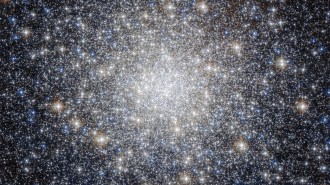 Astronomy
AstronomyA star cluster in the Milky Way appears to be as old as the universe
Globular cluster M92 is about 13.8 billion years old, a new calculation suggests. Getting the age right could help resolve a bigger cosmic conundrum.
-
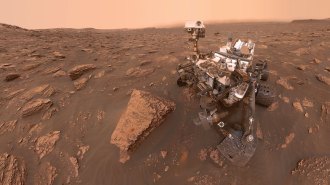 Astronomy
Astronomy‘Under Alien Skies’ imagines what the sky looks like on other planets
Astronomer Philip Plait’s new book takes readers on a thrilling ride to Mars, Pluto and even a black hole.
-
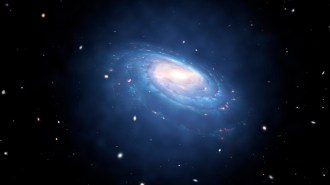 Astronomy
AstronomyAlien life may be possible even at the Milky Way’s edges
Phosphorus detected far from the Milky Way’s center seems to extend the zone where life could exist in the galaxy by thousands of light-years.
By Bas den Hond -
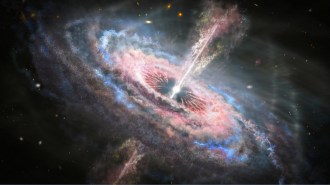 Astronomy
AstronomyIn a first, JWST detected starlight from distant galaxies with quasars
Until JWST’s sharp infrared eyes came along, it wasn’t possible to see the galaxies hosting extremely bright supermassive black holes called quasars.
-
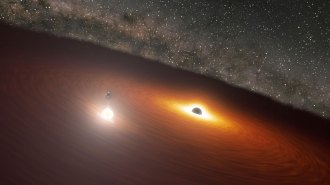 Astronomy
AstronomyA supermassive black hole orbiting a bigger one revealed itself with a flash
A supermassive black hole binary system has puzzled astronomers for decades. Now they’ve finally seen direct signals from the smaller of the two.
-
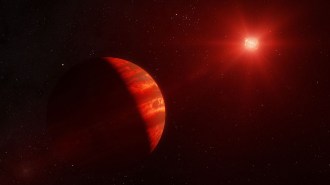 Astronomy
AstronomyJupiter-sized planets are very rare around the least massive stars
A six-year search of 200 nearby low-mass red dwarf stars found no Jupiter-like planets, boosting the standard theory for how such planets form.
By Ken Croswell -
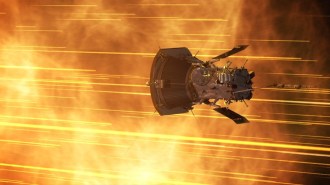 Astronomy
AstronomyThe Parker Solar Probe may have spotted the origin of high-speed solar winds
Kinks in the magnetic fields near the surface of the sun appear to be the cause of fast-moving flows in the solar wind.
-
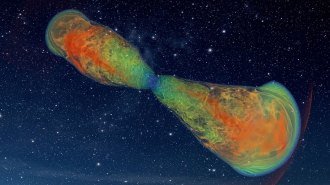 Astronomy
AstronomyA simulation of a dying star shows how it could create gravitational waves
Massive jets and an expanding cocoon of debris from a collapsing star could be a source of never-before-seen ripples in spacetime.
-
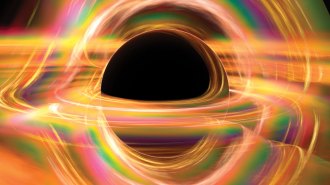 Astronomy
AstronomyWeird black holes may hold secrets of the early universe
Big black holes in little galaxies, rogue black holes and other behemoths could offer clues to cosmic evolution.
-
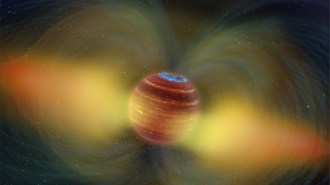 Astronomy
AstronomyThe first radiation belt outside the solar system has been spotted
Encircling a Jupiter-sized body about 18 light-years from Earth, the radiation belt is 10 million times as bright as the ones around Jupiter.
-
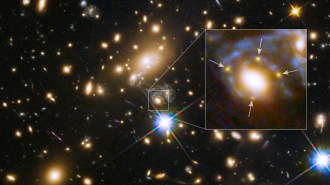 Astronomy
AstronomyA reappearing supernova offers a new measure of the universe’s expansion
Supernova Refsdal blew up once but burst into view at least five times. The timing of its appearances provides clues to how fast the universe is growing.
-
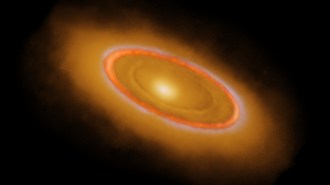 Astronomy
AstronomyThe James Webb telescope revealed surprise asteroids in the Fomalhaut star system
New images of Fomalhaut confirm that an alleged planet is probably just dust while also revealing a new asteroid belt and a “Great Dust Cloud.”